One only need to take a walk around We Work Moorgate in London to get a glimpse into the world of modern business. These buildings house hundreds of businesses operating in co-working facilities (The Times recently claimed there were over 800 of these co-working offices in London alone). For many of these tenants, their ‘offices’ simply consist of a smart phone, laptop (typically a MacBook Pro) and a headset. And their ‘window on their world’ is usually via an internet connection and a small collection of familiar desktop icons e.g. Spotify, Dropbox, Firefox and Skype.
The benefit of this agile working philosophy is of course significant for those willing to embrace it. First and foremost, the energy in these spaces is palpable, and in stark contrast to the often stultifying nature of older cubicle based 70’s constructions. More importantly the flexible nature of many of these offices ensures that companies can scale up as required, and align costs with the need. In turn, the cost savings of such a low capital intensive reality can be passed on to clients. But this new reality is also much more than just the office setup. The mindset is also very different. Agile working is very much a philosophy that you adhere to or you don’t. In short, you are either in Marissa Mayer’s (Yahoo) or Jason Fried’s (Basecamp) camp.
In 2013 Marissa Mayer, CEO of Yahoo famously sent a memo to Yahoo’s remote employees, advising that they had to begin working in offices. If they didn’t want to, they could quit.
Around the same time, Jason Fried co-wrote a book entitled Remote in which he claimed that: “As an employer, restricting your hiring to a small geographic region means you’re not getting the best people you can. As an employee, restricting your job search to companies within a reasonable commute means you’re not working for the best company you can.”
A few short years later, it is clear that in certain industries that agile working continues to grow at pace, with others lagging behind.
Of course, not every job can offer the agility we witness in co-working spaces like WeWork. People facing roles, and those working in regulated industries are amongst those who may always need to operate along more traditional lines. However, those working in creative, or tech focused industries have greater scope for agility, and are arguably more culturally aligned with this growing trend. Benefits of agile working can include reduced commuting times, greater productivity, reduced overheads, access to a wider talent pool and a better work-life balance.
So what are the challenges?
Security
For some, privacy and security are key concerns. However, these workspaces typically provide individual phone booths, and private rooms such that client privacy is not compromised in the slightest.
Protection of assets is also of paramount importance, and 2 factor encryption is typically the norm, ensuring that data protection is subject to the highest levels of security.
Shirking
For others, a fear exists that an inability to monitor employees increases the likelihood that they will slack off. Of course, ‘face time’ does not necessarily equate to employees working productively either, and the use of modern applications like Slack and Google Hangouts, have the side effect of increasing monitoring by stealth.
Non-tech firms
While many of the early adopter firms that have embraced this new agile first world are tech startups, a growing number of professional services firms like employment law firm, Constantine Law are beginning to recognise the benefits.
Constantine Law was established in 2015, by solicitor and entrepreneur John Hayes, and is based out of the Club House in Mayfair. Hayes had recognised this agile working trend among clients, and believed there was an opportunity for a law firm to embrace this new world also. He said: “The intention was to deliver high-end employment and business immigration services at hugely reduced costs, and with a more engaged workforce, resulting in a more cost effective and complete service to the client. We’ve delivered on our promise and the feedback from our clients has been universally positive.”
For Hayes, the economic benefits are one of the most compelling elements to this approach. Constantine Law has eliminated many of the fixed costs carried by most of their competitors, which has resulted in cost savings which they have been able to pass on to his clients. Similarly, by using software as a service (SaaS) applications the firm has ensured that colleagues can collaborate securely, while also enabling partners to have full visibility as to deliverables, and progress. The end-result, is improved client service at reduced costs.
In summary, agile working can mean different things to different people. While it is synonymous with concepts like home working, hot desking and flexible hours it is more about simply getting the job done without needing to be physically in a certain location at a certain time.
